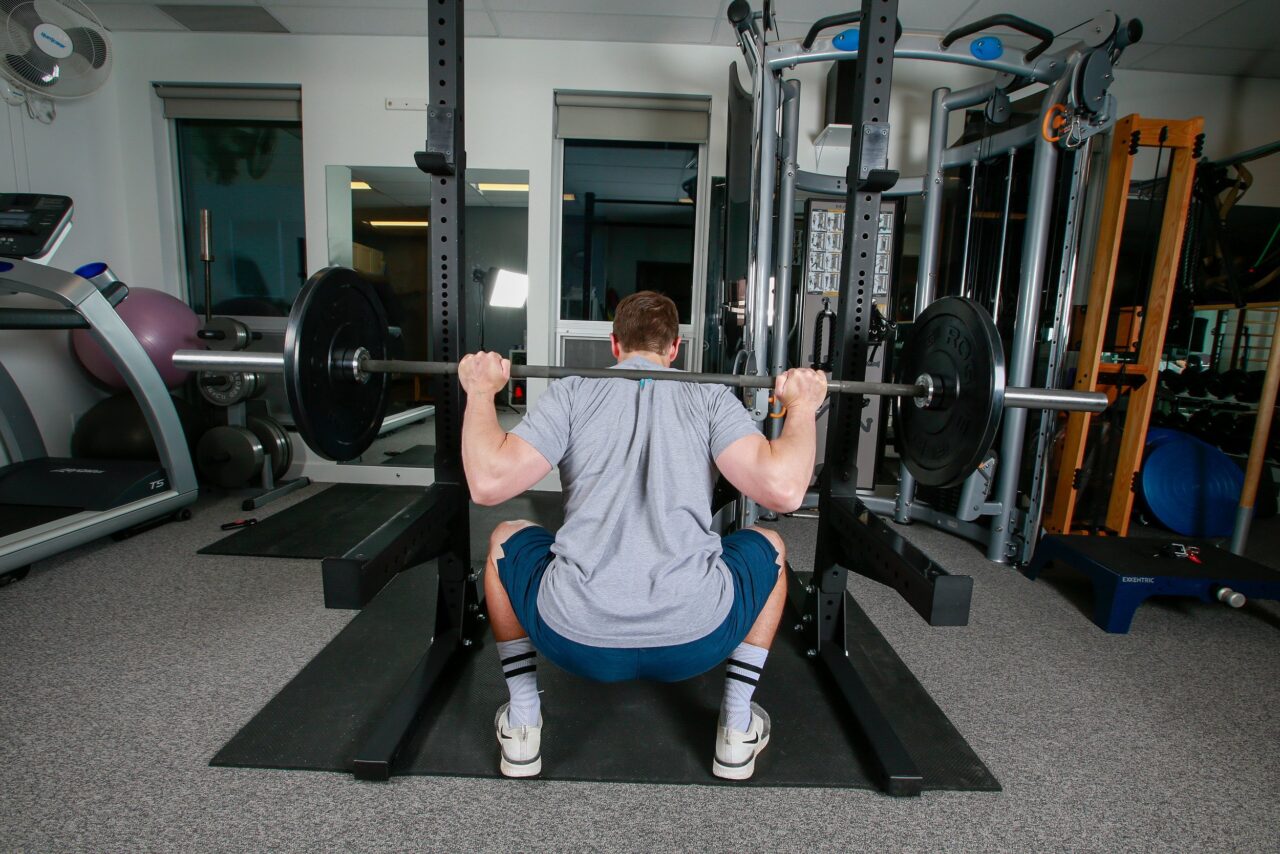Has anyone ever told you only squat to parallel and no lower because it is dangerous or bad for your knees? Did anyone making this claim provide any evidence to support it? This is highly unlikely considering the research has proven that deep squats below parallel are not only safe but provide protective benefit against knee injury when compared to the reduced range of motion squat.
The patellofemoral joint experiences compressive forces during any loaded knee flexion activity such as squatting. Research shows the greatest compressive forces at this joint occur between 80-100 degrees of knee flexion, at greater degrees of knee flexion the forces at the joint are less because they become dispersed across a larger surface area. If you are only squatting to parallel or 90 degrees of knee flexion, the turnaround from lowering to rising is occurring at the point of maximal compression of the patellofemoral joint!
Also, the idea that deep squats are dangerous to the knee is ludicrous and unfounded in the scientific literature. Studies show that weightlifters have increased thickness of the cartilage on the back side of the patella and more robust ACL and PCL ligaments than their untrained counterparts. The shear forces experienced by these ligaments in a deep squat are well below the load capacity of a healthy ligament. Research has shown that not only are deep squats safe, but they are actually protective of knee injury as they develop more robust ligaments and joint surfaces.
Furthermore, increased strength in the back squat compared to body mass has been shown to be protective against lower extremity injury. In 2020, a group from Texas State University performed a retrospective cohort study to determine whether the ratio of one-repetition maximum back squat strength to an athlete’s body mass could be used as a way to identify individuals at risk of lower extremity injury. They found that individuals with reduced relative back squat strength were more likely to experience a lower extremity injury over the course of the season (<2.2 for male football players, <1.6 for female volleyball and softball players).
Squatting low and heavy is not dangerous for your knees. It results in healthier knees that are better able to withstand forces and results in reduced risk of injury. The ability to lower and raise your center of mass is a functional movement pattern that is encountered repeatedly during activities of daily living. If you have ever experienced knee pain with squatting, are unfamiliar with proper squat mechanics, or simply have the desire to improve your athletic performance, schedule an appointment with one of our Boulder Physical Therapists for an evaluation. At Mend we have physical therapy specialists who work specifically with weight lifters and CrossFit athletes.

